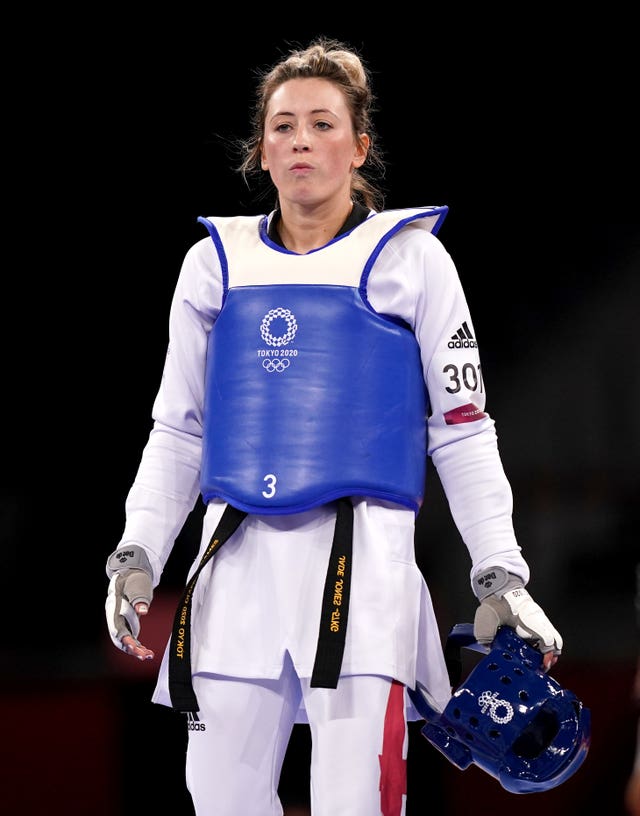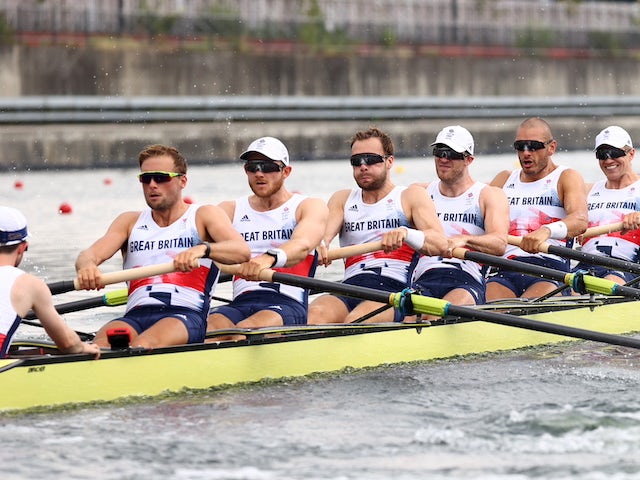The performance of British rowers in Tokyo needs to be put in perspective, according to the chief of Olympic funding agency UK Sport Sally Munday.
The rowing team secured just two medals in Japan – a silver and a bronze – the first time since Moscow in 1980 that they failed to win a gold.
Rowing received more funding from UK Sport in the Tokyo cycle than any other sport – over £24.6million – and is earmarked to receive a further £22m in the cycle through to the Paris Olympics in 2024.
UK Sport chief executive Munday said that, like all sports, the performance would be reviewed but believes there is plenty of promise for Paris in three years' time.
That's a wrap from the Olympic #Rowing Regatta 👇 W1x 4️⃣thM8+🥉 We're incredibly proud of all the rowers who represented #TeamGB at #Tokyo2020, the coaches and support staff with them and everyone who's helped them on the journey from squadmates to grassroots clubs 👏💪 pic.twitter.com/ZEajoZ1Olu — British Rowing (@BritishRowing) July 30, 2021
"I totally understand why people would ask the question about the two medals, but I think we need to put this into perspective of the bigger picture for rowing," she told the PA news agency.
"They made eight finals, which is more than any other nation, and had six fourth-place finishes, and they have got probably the youngest and least experienced squad that they have had in the last 20 years. And I think you need to put all of that in context.
"Clearly they (British Rowing) will be disappointed with coming away with just two medals, but there are some other real positives that have come out which I think bode very, very well for Paris.
"We will do a review with every sport, that happens after every Games. They will be looking at what do we need to change, what do we need to do differently going forwards, and we will support rowing in doing that post-Games assessment.
"I think there's huge promise for rowing in three years' time. I'm confident British Rowing will have a look at how they are going to convert those fourth-place finishes into podium places, and I think they have got the knowledge and expertise to do that."
Team GB enjoyed another stellar day on Friday, securing six more medals to take their overall tally to 24.
Munday hopes that success – and the engagement with Team GB from the public back at home – will convince the Government to commit to funding pledges for Paris.
"Sports know what funding they have got from an indicative point of view, but we still need to have commitment from Government for that funding," she said.
"I'm really optimistic with the amazing support we have had from Government, we have got the Sports Minister (Nigel Huddleston) coming to Tokyo, (Prime Minister) Boris Johnson has been getting actively involved on social media, supporting the British team.
Congratulations to Beth Shriever on winning @TeamGB's first ever gold in BMX racing, and well done to Kye Whyte for taking silver. #TeamGB #Tokyo2020 https://t.co/je32g4lUy3 — Boris Johnson (@BorisJohnson) July 30, 2021
"Now is a great opportunity for him to make a commitment to the Olympic and Paralympic teams through to Paris.
"The Brits love the Olympic and Paralympic Games, we know that public attitudes surveys tell us that 70 per cent of the British people follow Team GB whilst they're competing, we know consistently that Team GB is up there in the top three things that make British people feel proud to be British, alongside the armed services and the NHS.
"If ever there was a time for the Government to give us a really clear, public commitment to long-term funding, now's the time to do it."
UK Sport set a broad target range of 45-70 medals for Tokyo, highlighting the unique difficulties in predicting outcomes when so many of the usual events that take before an Olympics were affected by the coronavirus pandemic.
Asked how confident she was that the total of 67 from Rio could now be surpassed, Munday said: "Let's not get ahead of ourselves, we're a week into the Games and we've seen some incredible performances.
"We're at 24 now and that's fantastic. We still believe that we will fall within that range of 45 to 70. The programme has changed from previous Games, so there are some of the events that we've done well in that in Rio came later in the Games, so we've picked up some medals earlier than we would have done in Rio."

Munday and UK Sport chair Dame Katherine Grainger had spoken before the Games about the importance of "winning well", moving away from the idea of winning at all costs.
She praised British taekwondo athlete Jade Jones for how honestly she addressed the fear she felt going into the competition, and American gymnast Simone Biles who withdrew from the team and individual all-around competitions to focus on her mental health.
"What I think is fantastic, actually, about Simone Biles and Jade Jones and others, is that they feel confident to speak freely about where their head space is," she said.
"We would never hesitate to talk about the fact that we had an Achilles problem or a hamstring problem, we're now starting to see athletes openly talk about their mental health. For me, that is a real positive thing.
"Being an Olympian requires incredible dedication, commitment, guts and courage and I am really, really proud that athletes feel like they can now talk about their mental health because that's going to help again have a really positive impact on society, to encourage others that are struggling with mental health issues to feel like they can speak freely about it, and seek help and support where they need it."








